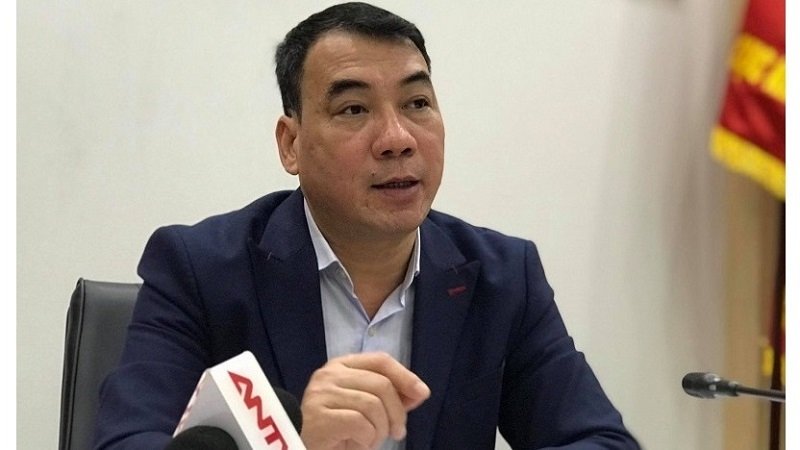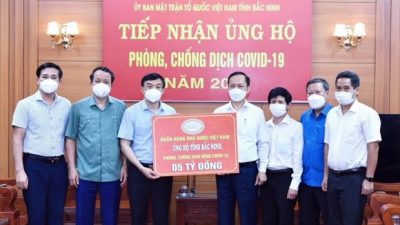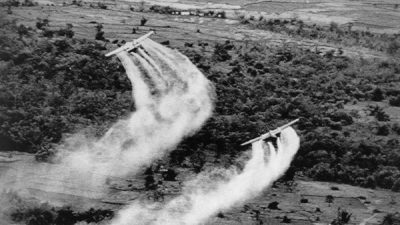
Vietnam will officially launch human trials of a locally-made COVID-19 vaccine from tomorrow (Dec 10) at the Vietnam Military Medical University. After the two initial stages of trial injections, in phase 3, Vietnam will coordinate with three other countries to conduct multi-centre research on the trials.
On Dec 9, the unit having the first COVID-19 vaccine tests on human in Vietnam reported their preclinical study results to the Ethics Council under the Ministry of Health to get approval for the start of phase 1.
Nhan Dan Online interviewed Dr. Nguyen Ngo Quang, Deputy Director of the Agency of Science, Technology and Training under the Ministry of Health about the roadmap for testing the made-in-Vietnam COVID-19 vaccine on humans.
Q: Could you tell us about the pre-clinical research results of the first COVID-19 vaccine in Vietnam involved in the upcoming clinical trial?
A: Pre-clinical studies, including virus strain development, production procedures, quality control and pre-clinical testing are rigorous processes and require all aspects to be ensured. On that basis, the Ethics Council will assess and decide whether to approve it or not.
In order to be able to deploy a product in general and vaccines in particular for humans, it is imperative that we have preclinical research.
For vaccines, there are five processes: building a cell bank; developing virus strains; developing technology and production processes; quality control; and reporting on the trial records and preclinical evaluation results.
Particularly with regard to the 5th element – the results of preclinical assessment, the management agency requires there are three main elements that need documentary proof: one is an assessment of immunogenicity; the second is an assessment of safety and toxicity; and the third is an evaluation of challenge test and of validity.
Up until now, the COVID-19 vaccine produced by Nanogen Pharmaceutical Biotechnology JSC has completed its pre-clinical research results regarding immunogenicity and has been confirmed by the National Institute of Hygiene and Epidemiology, with written results sent to the Ethics Council.
Q: How will clinical trial participants be selected?
A: In phase 1, the project will select volunteers. They volunteer to join according to their personal wish, without any pressure. The research team will provide them with the information about the study, including research objectives, the number of studies, research evaluation requests and other requests regarding the participation of volunteers.
After the volunteer has read all details carefully and had discussions with the research team members, they will have to sign a consent form to participate in the trial and fully voluntarily comply with all requirements.
In addition to participating in the volunteer trial, applicants must meet medical criteria with their indicators related to biology through the evaluation results of haematology and biochemistry being completely normal. There must have no chronic illnesses and be fully confirmed by a medical authority to be healthy. In addition, a number of criteria related to specificity will be adopted by the Ethics Council.
Q: In terms of expertise and technique, the vaccine testing process will not be shortened, but in response to the COVID-19 pandemic, the Ministry of Health has also allowed research units to shorten other administrative procedures. How do we shorten these steps?
A: In principle, a vaccine clinical trial is a time-and-effort study that takes an average of 7-12 years. However, in an emergency, during pandemic prevalence, or serving medical security, procedures can be reduced.
I would like to emphasise that we only reduce these in terms of administrative procedures, not others related to expertise and technology. The requirement is that manufacturers still have to answer three questions on how long the tested vaccine guarantees safety, how it ensures immunogenicity and how long its protective effect is.
Regulatory agencies and the Ethics Council require manufacturers ensure the above criteria, as well as the safety of subjects participating in research before assessing the vaccine’s immunogenicity and its protective effect.
Based on the current pandemic situation, vaccine development studies in the world, and the special capabilities of Vietnam with its vaccine research and development system, being among only a few countries recognised by WHO under their set regulations for the National Regulatory Authorities (NRA), the vaccine developed by Nanogen (Nano Covax vaccine) is expected to be tested via a clinical trial over the next 12-14 months.
Under the direction of the Ministry of Health, there is a collaboration between the manufacturer Nanogen and the Vietnam Military Medical University to develop a clinical trial research protocol for the Nano Covax vaccine with phase 1 starting from January 1 to April next year.
The Ethics Council will meet today and the project is scheduled to kick off tomorrow at the Hanoi-based Vietnam Military Medical University.
Q: Could you tell us about the procedure for the vaccine testing in Vietnam in the coming time?
A: After reviewing pre-clinical research records and similar studies around the world, it is expected we will test two main dosage ranges of 50 micrograms and 75 micrograms.
If approved by the Council, in phase 1, we will have about 40 participants. This is a very sensitive and important period, when moving from animal to human trials.
It is expected that from January – April next year, when the first phase 1 results are available, specifically assessing the safety of the two doses, the Ethics Council will switch to phase 2.
It is expected that phase 2 will be conducted from March – April 2021 on about 400 participants. Phase 2 requires the design of a control experiment group, which means we will use subjects who are at risk or related to epidemiological areas in a group to compare with the other group using the control drug.
On the basis of the phase 1 results, the governing body and the Ethics Council will allow the implementation of phase 2, followed by phase 3, which is scheduled to be tested on a minimum of 10,000 people sometime in August 2021.
In particular, phase 3 requires the implementation and evaluation of vaccines on high-risk subjects or the projection for SARS-CoV-2 in order to assess immunogenicity.
Q: To meet the research requirements in phase 3, what is Vietnam’s plan?
A: Currently, Vietnam has had a very good epidemic response, so we have concerns regarding seeking research subjects who are at high-risk or positive for the SARS-CoV-2 virus for phase 3.
At a recent cabinet meeting to report to the Prime Minister on COVID-19 prevention, the Minister of Health announced that Vietnam would officially coordinate with three countries namely Indonesia, India and Bangladesh to do multi-centre research, so that we can have a guaranteed minimum sample size of 10,000. According to an epidemiological report, these are the three countries in Asia with the highest epidemiological rates.
Currently, the Ministry of Health has assigned Nanogen to contact these three countries so that initial connections can be made. The ministry will send official documents to the health authorities of these countries to coordinate with Nanogen.
The goal is to coordinate with countries to increase the sample size and especially the number of subjects with high epidemiology or living in the epidemiological areas, so that we can compare with a team that do not use the vaccine at all to evaluate the vaccine’s effectiveness.
Thus, the study period is expected to start from January 1, 2021 and we hope that by December next year we have preliminary data on the safety of immunogenicity.
However, to assess the ability or effectiveness of the vaccine, we have to add a follow-up period because over 12 months, even 16 months we still do not have enough time to evaluate the vaccine’s effectiveness.
Q: Could you tell us more about the funding sources to support the research units?
A: Regarding the research funding, the units participating in the COVID-19 vaccine research will be invested in by the Government of Vietnam. After Nanogen, we will also have two other potential vaccines with which we can continue with clinical trials. Thus, in Vietnam, we have at least three vaccines that are in the research and development process and are expected to be subjected to clinical trials in 2021.
We hope that these clinical trials have positive initial results. It is expected that in January 2022, Vietnam can get vaccines produced in Vietnam to serve the community.
Source: Nhan Dan Online

